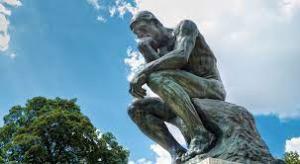Ethics and Human Behavior
As someone who studies ethics, I have observed the behavior of some students and professors in the field with some confusion. If ethics is the study of the right way to live, the right thing to do, then why do some in the field do the wrong thing? More specifically, why do some behave in ways that contradict the field they are studying or teaching? Why do some ethics teachers breach ethics?
Ethics Professors and Falsified Work
Francesca Gino, Professor of Business Administration at Harvard Business School (HBS), has made the news for the wrong reasons. Gino is a very successful professor and author. Thinkers 50 named her one of the most influential business professors under 40. She won the HBS Faculty Award by HBS’ 2015 MBA class. Her work has been featured in Newsweek, The Economist, The New York Times, Scientific American, and National Public Radio.[1] Gino is an impressive scholar.
On June 25th of this year, The Guardian reported that some of Gino’s work had been falsified. A blog called DataColada published posts purportedly demonstrating that Gino used fraudulent data in some of her work.[2] The authors write,
In the fall of 2021, we shared our concerns with Harvard Business School. Specifically, we wrote a report about four studies for which we had accumulated the strongest evidence of fraud. We believe that many more Gino-authored papers contain fake data. Perhaps dozens…[3]
Due Process
Gino is entitled to a fair hearing, and evidence from a blog should not bring an end to her career without a just process, no matter how compelling the evidence seems. It is always wise in the face of serious accusations to wait for the entire story to emerge. Gino, currently on forced leave from HBS, is suing the authors at DataColada and HBS.[4] She argues the charges are false and that she has been mistreated by the HBS. If the disciplinary action against her goes to its completion, she will be the first HBS faculty to have her tenure revoked. Hopefully, the truth will emerge quickly. No one should take glee at either result. Either Gino has falsified data or HBS has treated her shamefully.
Problems in Academic Life
If Gino has falsified data, she would not be the first academic to do so. A study by the American Psychological Association estimated that between 9-18% of psychological researchers had witnessed data falsification and that between 12-20% of studies had major inconsistencies resulting from misconduct, shoddy research, or error.[5]
Falsified data is not just a problem in Psychology. It occurs in the humanities and even medicine. It is prevalent enough for a published study that analyzed the writing patterns of scientists who lie.[6]
The Data on Falsified Research
The question, of course, is why. Falsification of data would lead to disastrous consequences for the researcher and the institution where the researcher served if proven. Lying in this way could lead to lawsuits, termination, and public humiliation. Why take that risk?
How Institutions Teach Ethics
Bad behavior is possible, even among those who one would think should know better. One philosopher argues for a separation between what an ethics instructor teaches and how the instructor behaves. “Ethicists are supposed to be scholars, not saints.”[7]
This assumption is precisely what is wrong with instruction in ethics in our colleges and universities. They teach ethics as a subject to be mastered, not a way of life; they teach ethics as a field to be grasped not a way of living the good life. Behavior is as irrelevant to the academic study of ethics as it is to the study of medieval metallurgy. As long as one does not cheat in the class, what does it matter how they behave outside the class?
In most undergraduate and graduate institutions, professors and instructors teach ethics as a series of systems. To learn ethics is to learn Natural Law theory, Relativism, Feminist Ethics, Evolutionary Ethics, Virtue theory, Egoism, Altruism, Utilitarianism, Objectivism, Deontological ethics, Value Theory, and others. Each theory is then a field of inquiry in itself. One could master each field of inquiry, and not be a good person. In that sense, training in ethics cannot teach students to be ethical people. It cannot do that as a result of its design.
If institutions teach ethics as a field of inquiry and not as a skill, training in ethics will not result in more ethical behavior from students. Worse, whatever behavior a person wants to justify, he or she can find a system that will justify it. In terms of teaching one to be ethical, this process might be worse than not training in ethics whatsoever.
The Ancient Greeks
The ancient Greeks used to argue that to be a good person, to be ethical, required one to know the good. If one could know the good they would naturally have the good as the highest goal of their life. Having the good as their final goal, people would do it out of habit. Instruction would no longer be necessary because knowing the good would mean doing it. Conversely, doing evil meant that one had not fully grasped the good.
When I first studied Greek ethical systems as an undergraduate, I was not persuaded. I reasoned that we have a will and that will can be turned away from the good, regardless of our knowledge. I am still not exactly persuaded by the Greeks, but I do think they are on to something. What one thinks is the highest good will affect his or her behavior.
Gino Among the Greeks
For the moment, assume the charges against Gino are true. If she truly falsified data, there was a reason for it, and that reason had to be that she thought the benefits of falsifying the data outweighed the risks. She had an end in mind, a “good.” Perhaps it was gaining tenure or getting published. She could have thought that the funding she would gain by having published research was worth falsifying the data. These goals, however, fall far short of the good. Only by placing these secondary goals in place of the good could she have made such a determination. If she understood the good, she never would have made that choice. Like trading a new Ferrari for a 4th hand Yugo, it is something a reasonable person would never do.
While the good is difficult to define (it is an ideal that transcends definitions much the same way beauty and truth do), the good creates character. Character is the quality of a person’s life over time. It is character that makes life good not success or accolades.
What Is the Purpose of A Lock
In light of ethical problems both inside and outside academia, I think some change is in order. Most intuitions adjust their processes when they face a crisis like HBS is. They will strengthen their oversight board and tighten up the research application process. These steps are good, but there are no systems strong enough to prevent dishonest people from getting around them. As my father used to say, “The purpose of a lock is to keep an honest man honest. It does not help that much against a dishonest man.”

Rather than teaching Ethics as a subject, why not revert to teaching the virtues of the Greeks: wisdom, temperance, bravery, and justice? These are not explicitly religious values and are nearly universal. After developing ethical persons, then it would be fitting to have ethical persons study ethical systems. Continuing to teach ethics as a system will continue to affect little positive change in the students who study it.
More By Layne Wallace: Plagiarism in the SBC
[1] https://www.hbs.edu/faculty/Pages/profile.aspx?facId=271812
[2] https://www.theguardian.com/education/2023/jun/25/harvard-professor-data-fraud
[3] https://www.theguardian.com/education/2023/jun/25/harvard-professor-data-fraud
[4] /poetsandquants.com/2023/09/01/these-b-school-professors-have-raised-more-than-300k-to-defend-themselves-from-francesca-ginos-lawsuit/
[5] https://www.apa.org/monitor/2021/09/career-research-misconduct
[6] https://news.stanford.edu/2015/11/16/fraud-science-papers-111615/
[7] https://dailynous.com/2023/09/08/immoral-moral-philosophers/
















